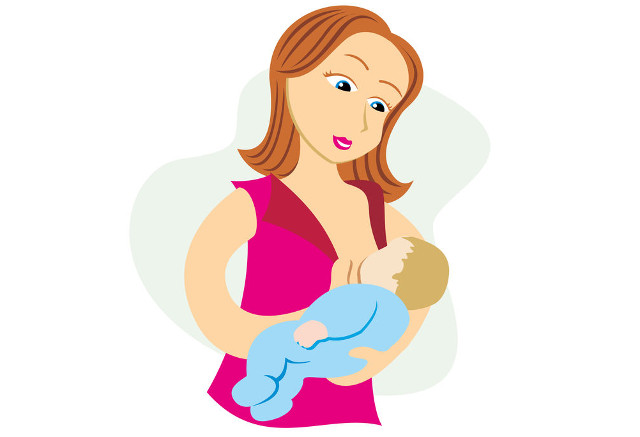Does the duration of breastfeeding matter?
Nutrition-wise, breast milk has many benefits, regardless of how long one manages to breastfeed. Even breastfeeding for the first few days of birth will give your baby the benefits of colostrum, which contains antibodies and helps with digestion.
Breast milk offers beyond the nutrition that a baby needs in the first six months, as breast milk strengthens the baby’s immune system, lowers risk of infection and diarrheal disease. Breast-fed babies are also less likely to be obese, diabetic, develop cancer and have high blood pressure.

#1 Duration
The World Health Organization (WHO) and the American Academy of Pediatrics (AAP) recommends exclusive breastfeeding for six months and continued breastfeeding with solid foods for 12-24 months, or for as long as the mother and baby desire.
Parenting expert and author of ‘What to Expect when You’re Expecting’ had recommended that for “a six-month old, breast milk or formula milk is still the main source of nutrition and will continue to be for the most of the first year”.
#2 Maintaining Milk Supply
Breastfeeding is controlled by hormones and one of which is prolactin that stimulates milk production. Every time the baby nurses, a signal is sent to the brain to trigger more prolactin release. If a mother ceases to feed for more than a few days, the prolactin hormone may drop so low that breast milk production is affected.

The best way to maintain milk supply is to continue breastfeeding, generally recommended to be on-demand especially for the first few months. Dr Bill Sears, America’s renowned pediatrician and author states that “on-demand feeding is increasingly recommended versus feeding babies on four-hour schedule, which had been associated with a failure to thrive”. For working mothers, expressing milk at work is a way to maintain milk supply.
Heidi Murkoff, author of the world’s best-selling pregnancy and parenting series, What to Expect, encourage mothers to ensure “each breast gets drained before you move on to the next.” That way mothers can ensure that their baby is getting both the foremilk (the thirst quencher, which is thinner) and the hindmilk, which is creamier, full of more fat and calories.
Quick Tip: A good rest ensures good nutrition. Don’t forget to drink enough fluids to maintain milk supply. Stress, illness, smoking, birth control and certain medication may temporarily decrease milk supply. If there is reduced in milk supply, it is generally advised to seek a lactation consultation soon as prolonged milk reduction may not be reversible.
#3 Possible Obstacles
Going back to work is a common obstacle to mother’s efforts in continuing breastfeeding. Even if expressing milk at the workplace is feasible, a working mother who has just given birth may feel too tired, stressed with juggling work and baby to persevere with breastfeeding.
Spousal support and encouragement is an important factor too. Dads can help out during night-feedings, doing household chores and even help to prepare nutritious meals so that the mum can rest and focus on breastfeeding.
Medical conditions and infection may develop for some after starting breastfeeding, for instance, breast infection, abscess, breast engorgement and sore nipples. This may dampen mother’s morale in the continuation of breastfeeding. Another obstacle is time commitment. Each family’s situation is unique and sometimes, the effort and time required to continue breastfeeding may overwhelm a mother.
#4 Weaning
The AAP recommends starting solids at about six months old, with continued breastmilk given to the baby. There are various signs to observe whether a baby is ready for starting solids, such as the ability to sit up, hold the head up, grasp objects and move foods in the mouth.

Starting solids at six months old should be seen as a discovery process for the child as they experience new tastes and textures, rather than trying to get a complete nutrition from solid foods.
It is important because it meets the baby’s changing nutritional needs, in particular an increased need for iron. Delay in starting solids has also been observed to affect the baby’s oral motor function and linked to an aversion to solid foods.
How long you choose to breastfeed your child is a personal decision. Don’t be disheartened should you face any criticisms or judgements from others. Whether it’s three months, one year or three years, your child will reap the benefits and your love for them.
By Marcie Mei
This was first published in our Breastfeeding with Love e-guide.
Join the Breastfeeding with Love Group to find out more and be part of our breastfeeding online community!















































Leave a Comment: